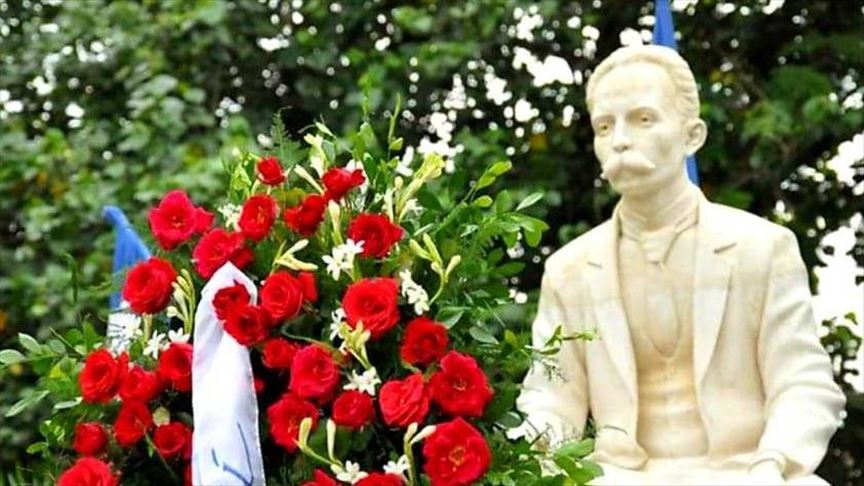
ANKARA
Jose Marti's dedication to Cuban independence, even during his years in exile, has made him a hero for all Cubans and apostle of Cuba's revolution.
Cuba -- a country with a long history of struggle against colonialism -- is commemorating the 167th birth anniversary of Marti this year.
Marti, a poet and journalist, was born to an underprivileged Spanish immigrant family in Havana, Cuba on Jan. 28, 1853.
He was 16 years old when his poetry and writings on politics were featured in prints.
In 1869, Marti founded La Patria Libre (The Free Homeland) newspaper, where he published several significant poems including Abdala -- in which he describes the liberation of an imaginary country -- to turn his revolutionary efforts into practice.
Borderless warrior
His criticism of Spanish rule in the country later led to his arrest, and after two years, he was deported to Spain.
During his exile years, Marti continued his political writings and also completed a law degree at Central University of Madrid and later at the University of Zaragoza in 1874.
The following year, he moved to Mexico, and after spending two years there, he moved to Guatemala and became a professor of literature, history and philosophy.
He also married Carmen Zayas Bazan.
He and his wife decided to return to Cuba when the Ten Years' War, Cuba's fight for independence from Spain, was ended in 1878 and their son Jose was born the same year.
The writer had to leave his homeland again in 1879 after he was arrested following a clash between farmers and Spanish troops.
France and Venezuela were temporary destinations for Marti before he settled in New York in 1881.
He wrote in both English and Spanish for several newspapers as well as essays on some poets and he shared his impressions of the U.S. as a reporter.
Marti urged Latin American countries to unite and suggested those countries learn from America but establish governments adapted to their own culture and needs with his well-known 1881 essay called Our America.
He also continued to invest in his poetry skills and published the book Ismaelillo in 1882 and Versos Sencillos (Simple Verses) in 1891.
Additionally, he worked as consul of several Latin American countries in New York including Uruguay, Paraguay and Argentina.
Marti developed ties with other exiled Cubans during his time there.
After becoming a delegate of the Cuban Revolutionary Party in 1892, he wanted to put his independence plans into action.
He was planning to overthrow the current administration to prevent U.S. interference and also aiming for a government that did not depend on a single group or class.
Then he joined two generals from the independence war -- Maximo Gomez and Antonio Maceo -- and arrived in April 1895 and began the fight.
He was shot and killed by Spanish troops on a battlefield on May 19.
Decades later, Cuban leader Fidel Castro admitted Marti's contribution to his own revolution in Cuba.
The famous song Guantanamera's lyrics, recorded by American singer Pete Seeger, were adopted from his poetic collection Versos Sencillos.
I am a truthful man,
From the land of the palm.
Before dying, I want to
Share these poems of my soul.
...
And for the cruel one who would tear out
This heart with which I live.
I cultivate neither thistles nor nettles
I cultivate a white rose.
Anadolu Agency website contains only a portion of the news stories offered to subscribers in the AA News Broadcasting System (HAS), and in summarized form. Please contact us for subscription options.


